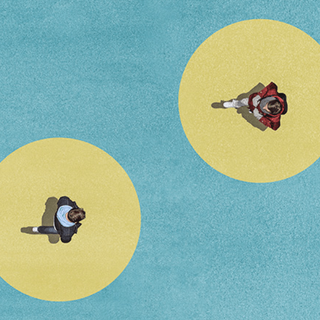Last month, the Ministry of Health and Family Welfare issued an advisory titled Minding Our Minds During Covid19, which explicitly urged people not to resort to alcohol, tobacco, or other drugs to cope with boredom, because they can have adverse impacts on an individual’s physical and mental health, and reduce their immunity.
However, in addition to substance dependence, like drinking and smoking, the world is also witnessing behavioral dependence, like excessive video gaming and binge-streaming multimedia content. In fact, experts believe that the pandemic could spawn a global gambling addiction as well. “Every risk factor for gambling addiction is spiking right now, and the same is true for internet and gaming addiction. There could be a wave of addiction, quite a big wave,” Keith Whyte, executive director at the National Council on Problem Gambling, told Bloomberg.
According to a 2012 study published in the International Journal of Preventive Medicine, behavioral dependencies affect the neurotransmitter systems of the brain. Every time an individual consumes a drink or plays a video game, dopamine (the feel-good hormone) is released, inducing a sense of well-being in the body. In the absence of other avenues of recreation now, the body begins craving more of the substance or behavior in order to experience the same sense of euphoria.
Related on The Swaddle:
Amid Covid19 Alcohol Ban, Sri Lankans Are Brewing Moonshine
People are also experiencing stress-induced food cravings. Experts believe this is a result of people wanting to distract themselves from the mundane reality of constantly staying at home. In addition, the lockdown has completely disrupted normal routines, leading to many changes in people’s snack and meal times. When people are bored and at home, surrounded by food at all times, snacking becomes easy.
“When we are stressed, stress hormones are released into the body and the fight-or-flight response is triggered. When we experience this response, our body thinks it’s in danger and needs fuel (food) for these extra tasks it may have to perform. The body cannot differentiate between what is a real threat and a perceived threat,” Dr. Rachel Chin, a clinical psychologist at Pennine Care NHS Trust, told The Independent, explaining why people might be compulsively eating during the pandemic.
“Anything that is in excess to the required amounts, and anything whose absence leads to craving, both physiologically and psychologically, amounts to dependence,” Dr. Vasanth R., consultant psychiatrist specializing in addiction treatment at Fortis Malar, Chennai, told The Hindu this week.
Social distancing measures severely limit recreational options outside the home. The resulting elevated levels of boredom and stress erode self-control and increase risk-taking and impulsiveness across various domains of health and recreation, according to a study published in the Journal of Behavioral Decision Making.
Chips, anyone?




